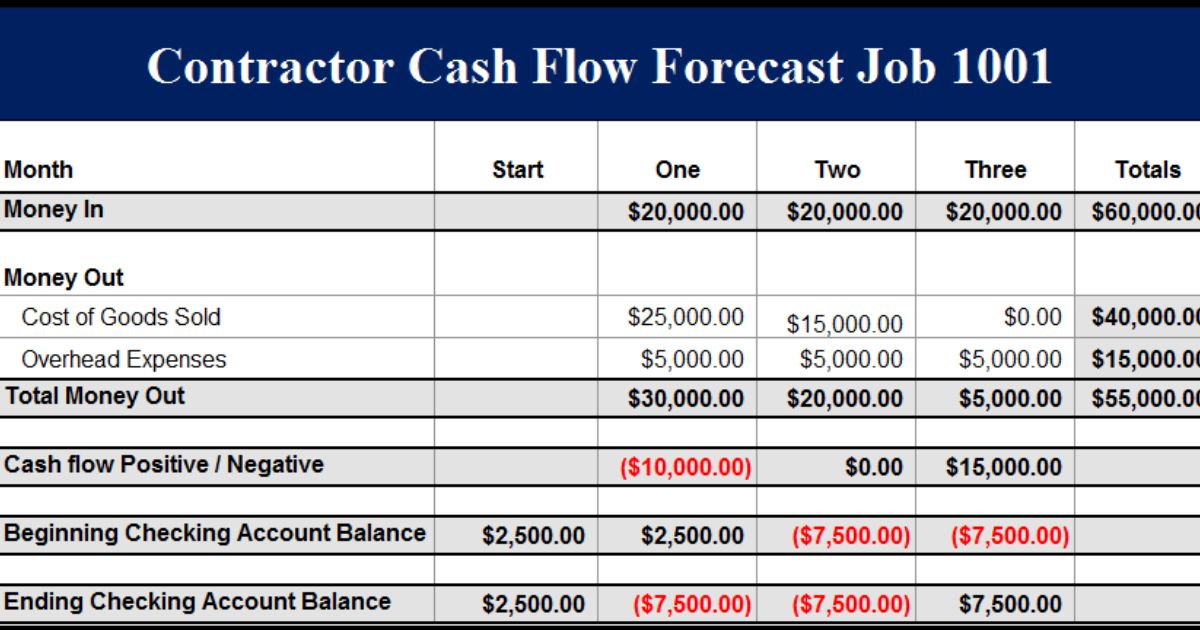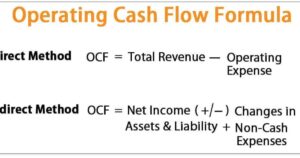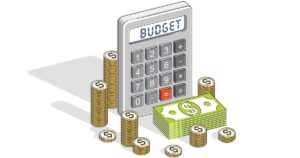Affect Cash flow and profit are two important terms in business. Cash flow shows how money moves in and out of a company, while profit is what’s left after all expenses. Understanding the difference between cash flow and profit helps businesses make better financial decisions.
Many people think cash flow and profit are the same, but they are not. While profit measures the success of a business, cash flow shows its ability to pay bills on time. Understanding the difference between cash flow and profit is key to keeping a business healthy.
If you’ve ever wondered why a profitable business can still struggle with bills, it’s because cash flow and profit tell different stories. By learning how to manage both, you can ensure your business stays strong and grows steadily. Keep reading to discover why this difference is crucial for your financial success.
Invoicing plays a crucial role in managing cash flow, impacting how a business handles its finances and operations. The efficiency and effectiveness of invoicing processes can significantly influence a company’s liquidity and financial health. Understanding how invoicing affects cash flow is vital for business owners and financial managers to maintain a stable and thriving enterprise.
The Impact of Payables on Cash Flow
The way a business handles its payables directly affects its cash flow. Payables refer to the money a company owes to its suppliers or vendors for goods and services received.
When a business delays its payments or has trouble managing its payables, it can affect cash flow. On the other hand, timely payments can help maintain good relationships with suppliers and may even lead to better terms or discounts.
The balance between paying bills promptly and managing cash reserves is delicate. It is essential for businesses to plan their payments strategically to avoid cash shortages while taking advantage of any available payment terms that could benefit their financial position.
The Role of Invoice to Cash
The invoice-to-cash cycle is a critical component of cash flow management. This cycle encompasses the process from when an invoice is issued to when the payment is received and processed. Efficient management of this cycle can lead to improved cash flow and financial stability.
The quicker a business can convert its invoices into cash, the better its cash flow will be. Implementing practices like prompt invoicing, following up on overdue invoices, and offering multiple payment options can accelerate this process, thus enhancing overall cash flow.
Transactions That Affect Cash Flow
Various transactions can impact a company’s cash flow, and understanding these is essential for effective financial management. Transactions such as sales revenue, expenses, loan payments, and investments play significant roles in cash flow.
For instance, a sudden drop in sales revenue can lead to cash flow issues, while unexpected expenses can strain available cash reserves. Monitoring and managing these transactions proactively helps ensure that a business maintains a positive cash flow and avoids potential financial difficulties.
How Payment Terms Influence Cash Flow?
Payment terms are agreements that outline the conditions under which payments are to be made. These terms can significantly influence cash flow by determining how quickly a business receives payments from its customers.
Longer payment terms can result in delayed cash inflows, which may negatively affect cash flow. Conversely, shorter payment terms or offering incentives for early payments can improve cash flow. Businesses should carefully consider their payment terms to balance customer satisfaction with their cash flow needs.
The Effect of Invoicing Timeliness on Cash Flow
Timeliness in invoicing is crucial for maintaining a healthy cash flow. Issuing invoices promptly after goods or services are delivered ensures that businesses can quickly begin the process of receiving payment. Delayed invoicing can lead to delayed payments, affecting cash flow and potentially causing financial strain.
The practice of regular and timely invoicing helps businesses manage their cash flow more effectively and ensures that they have the necessary funds to meet their financial obligations.
How Accurate Invoicing Impacts Cash Flow?
Accuracy in invoicing is equally important for cash flow management. Errors in invoices, such as incorrect amounts or missing information, can lead to payment delays and disputes.
These issues not only affect the timing of cash inflows but can also damage relationships with clients. Ensuring that invoices are accurate and complete helps facilitate smoother transactions and faster payments, which in turn supports better cash flow management.
The Role of Follow-Up in the Invoice-to-Cash Cycle
Following up on invoices is a critical step in the invoice-to-cash cycle. Timely follow-ups on overdue invoices can significantly impact cash flow by accelerating the payment process and reducing the risk of bad debt. Implementing a systematic follow-up procedure can help ensure that invoices are paid promptly, contributing to a more stable and predictable cash flow.
How Discounts and Incentives Affect Cash Flow?
Offering discounts or incentives for early payment can positively affect cash flow by encouraging faster payment from customers. These incentives not only motivate customers to pay sooner but also can improve customer relationships and loyalty. While discounts may reduce the total revenue received, the benefit of quicker cash inflows often outweighs the cost, making it a strategic approach to managing cash flow.
The Impact of Client Payment Habits on Cash Flow
Client payment habits can significantly influence a business’s cash flow. Clients who consistently pay late can create cash flow challenges, requiring businesses to adopt strategies to manage these risks.
Understanding and addressing client payment behaviors, such as setting clear payment terms and implementing effective credit control measures, can help mitigate the impact of late payments on cash flow.
The Influence of Payment Methods on Cash Flow
The choice of payment methods can also affect cash flow. Offering various payment options, such as credit cards, electronic transfers, and online payment systems, can facilitate quicker payments and improve cash flow. Businesses should evaluate the payment methods that best suit their customers and optimize their invoicing processes accordingly to enhance cash flow management.
The Importance of Regular Cash Flow Monitoring
Regular monitoring of cash flow is essential for identifying potential issues and making informed financial decisions. By keeping track of cash flow regularly, businesses can anticipate cash shortfalls, manage payables.
It is receivables more effectively, and implements timely corrective actions. Using affect cash flow forecasting tools and financial reports can aid in maintaining a clear picture of cash flow and ensuring financial stability.
How Seasonal Variations Affect Cash Flow?
Seasonal variations can impact cash flow, especially for businesses with fluctuating revenue streams. Understanding and planning for these variations can help manage cash flow more effectively during peak and off-peak seasons. Businesses should develop strategies to handle seasonal affect cash flow challenges, such as maintaining cash reserves or adjusting payment terms during high-demand periods.
The Impact of Credit Terms on Cash Flow
Credit terms extended to customers can influence cash flow by affecting the timing of cash inflows. Offering credit can boost sales but may also delay payments, affect cash flow. Careful management of credit terms, including assessing customer creditworthiness and setting appropriate credit limits, can help balance sales growth with cash flow stability.
Frequently Asked Questions
Q1. How can late invoicing affect my cash flow?
Late invoicing can lead to delayed payments, which may disrupt your affect cash flow. Timely invoicing ensures quicker payment processing and helps maintain a stable cash flow.
Q2. What are some strategies to improve invoice-to-cash conversion?
To improve invoice-to-cash conversion, you can issue invoices promptly, offer multiple payment options, follow up on overdue invoices, and provide incentives for early payments.
Q3. How do long payment terms impact cash flow?
Long payment terms can delay cash inflows, potentially straining your cash flow. Shorter payment terms or early payment incentives can help improve cash flow.
Q4. Why is accuracy important in invoicing?
Accuracy in invoicing is crucial to avoid payment delays and disputes. Accurate invoices facilitate smoother transactions and faster payments, supporting better cash flow management.
Conclusion
Invoicing is a fundamental affect cash flow management that can significantly impact a business’s financial health. Effective invoicing practices, including timely and accurate invoicing, strategic payment terms, and proactive follow-ups.
It plays a crucial role in maintaining a stable affect cash flow. By understanding and optimising these elements, businesses can enhance their cash flow management, support financial stability, and foster growth.

Milton is a seasoned financial strategist who shares expert insights and practical tips on mastering cash flow to help you achieve financial stability and growth.











